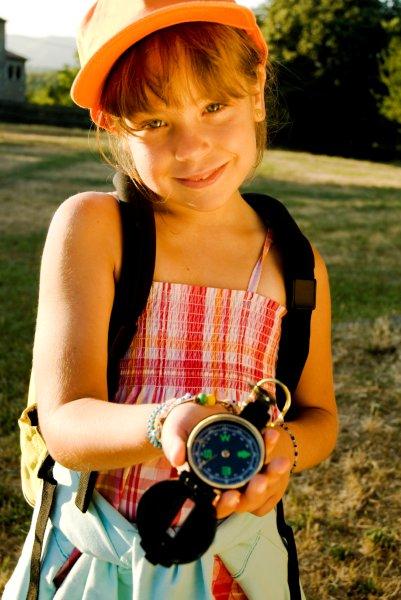
What is it?
Orienteering is a term used to cover sports that use maps and a compass to help the participant navigate what is usually unfamiliar terrain. People usually use the word to refer to orienteering on foot, but it can apply to a much wider range of pastimes including travelling by canoes, bikes, cars and skis; however, foot orienteering is the most popular version to try out!
What does it involve?
The basics of orienteering involve successfully reading a map and compass to reach checkpoints marked on the map in a certain order to check them off a list and complete the course. Electronic navigational devices are not allowed while orienteering, and there are many complex variants on style and rules involving teamwork, relay and time trials - but the basics remain the same throughout.
Why do it and what are the benefits?
This activity can be a great way of connecting students with nature in an increasingly technological world, and will satisfy any budding explorers in the group. It's also a great team building exercise as everybody works together to navigate their way through an unfamiliar environment to reach the goal.
What equipment do we need?
If going orienteering with an established company, they should provide all the equipment you should need, but make sure to check beforehand. You should make sure all your students are dressed appropriately for whatever the current weather is - check the forecasts and ask the venue for advice!
Who is it suitable for?
There are no real age limits on orienteering, but you may find it hard to engage younger children in the activity as it requires attention to detail and a fair amount of patience; but exploring the outdoors may hold an appeal for some students!
Costs?
The varying nature of the outdoors and the complexity of the course will change the costs of orienteering from place to place.
Issues/Things to think about? (unsuitable for age groups, medical conditions etc)
Participants should hold a reasonable level of interest in the activity or could quickly get bored!
How do we include?
You may find it hard to include students with physical disabilities in orienteering as it often takes place outdoors on uneven terrain, and requires quick travel when competing. However, there are places that have courses set up specifically for those with disabilities which could be a great experience for those concerned - make sure to check what's available in your area!
Doing it abroad?
Orienteering is fairly popular all over the world, but not especially well advertised! Don't wait until arriving to seek out the activity, make sure to do your research beforehand to find a good organisation.
Main website:
http://www.britishorienteering.org.uk (link is external) is the main website for the competitive sport, but also has some good links concerning school trips!





